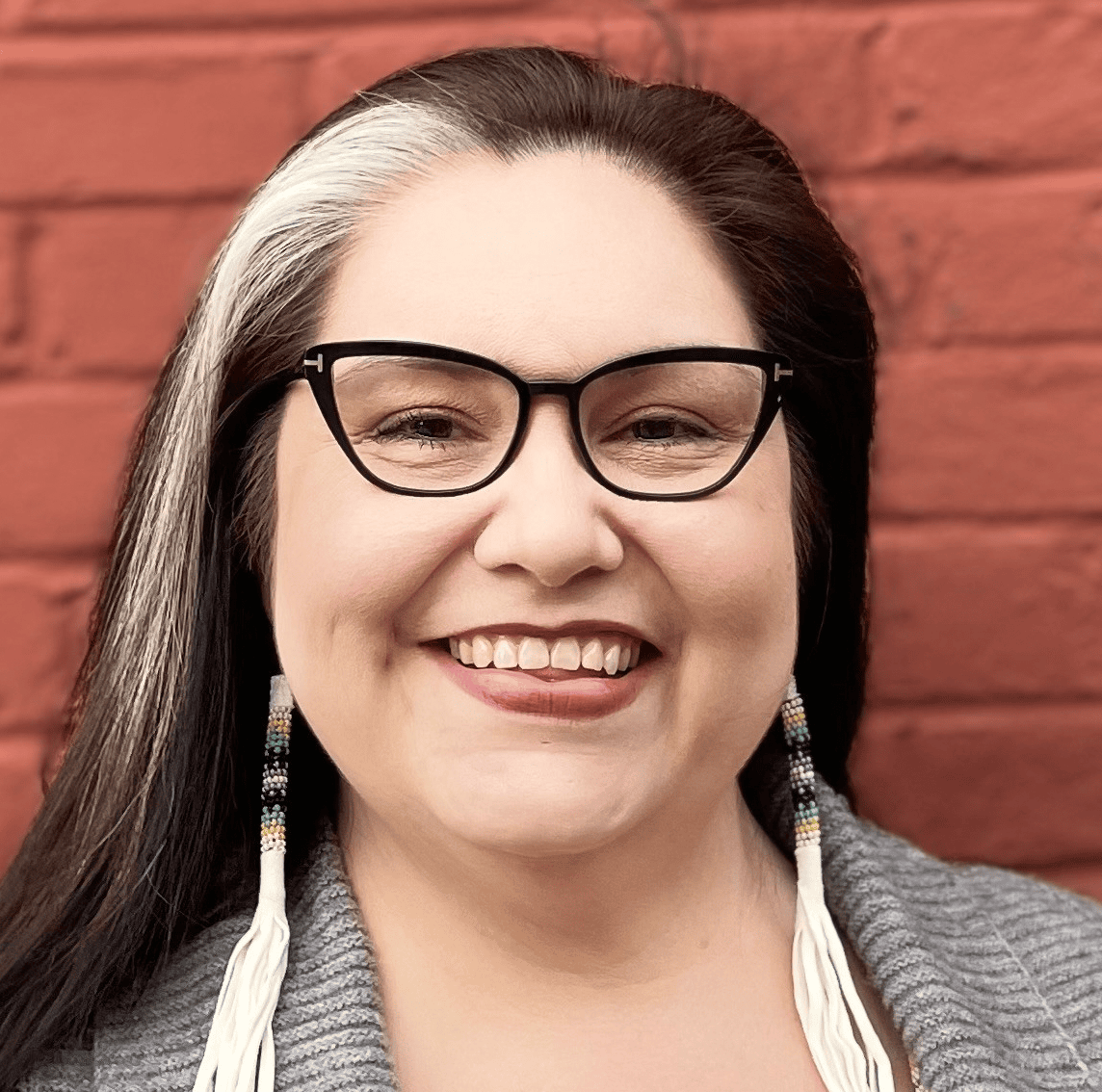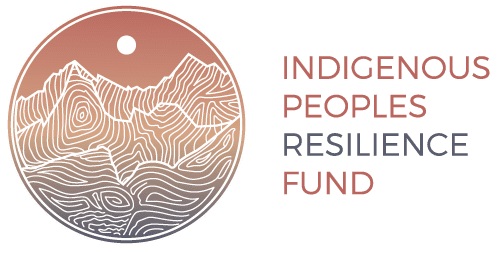
Janine Manning (she/her)is Anishinaabe and a member of the Chippewas of Nawash Unceded First Nation (Neyaashiinigmiing, ON), and lives and works in her maternal traditional territory, Saukiing Anishinaabekiing (Owen Sound, ON). For over a decade, Janine has been in the not-for-profit and charitable sector in a range of leadership roles supporting Indigenous-led charities, and Indigenous-serving organizations advancing Indigenous community prosperity and relationship-building. Janine is also the first Indigenous person to chair a private family foundation at the Laidlaw Foundation, where she currently serves as Chair.
Janine has held a relationship with IPRF as a volunteer reviewer, applicant, and now staff member. She has consistently shown her drive with the social impact mission of promoting wise practices in philanthropy that uphold the values of Indigenous communities. We welcome her skills and values to IPRF and its future.
How did you become involved with IPRF?
That's a great question. And I'm gonna try and keep it brief because I've had a bit of some interaction with IPRF and a strong affinity with the work. I first became involved with IPRF in its early stages, just prior to developing community partnerships via granting.
I was a volunteer on a couple of committees, including the review committee, which was a group of Indigenous folks who were working in philanthropic and/or granting spaces, who came together to support IPRF in developing its initial intake and application process. I personally brought in a number of ideas to the group from my experience with directing the Indigenous Culture Fund at the Ontario Arts Council.
I then joined the East Review Committee and supported reviewing applications that came in from this region. And for at least a year, I supported that committee before becoming chair of the Laidlaw Foundation and stepping aside to focus on that commitment. I also supported IPRF in its early stages by volunteering to write a primary report on developmental evaluations for the advisory council's information, which was then used to initiate further work on organizational growth. And eventually, I became an IPRF grant recipient in a previous fundraising capacity I had.
The word “resilience” is at the heart of IPRF. I am curious, what does that mean to you?
Resilience, what does it mean to me? So when I hear the word resilience, I immediately think of my matriarchs–my mother, my grandmothers, and my great-grandmother, who held together and held up our families and communities.
I think of all the barriers that I have faced as an Indigenous woman and matriarch myself, and I feel proud of the strength my matriarchs and my lived experiences have given me. So resilience to me means strength.
But I think the word can also be triggering for some folks. At times, it is for me. Because on the flip side of resilience, we are tired. Often we're tired of always having to be resilient, of always having to face and defy barriers that are embedded in our path due to colonialism. Survival is hard work.
And I hope we can come to a place in society where we can be celebrated and revered as First Nation, Métis and Inuit for many collective and individual talents, gifts, cultures, languages, knowledge and beauty without the tiring colonial roadblocks that force us into survival and advocacy mode.
And I think that's what's so brilliant about IPRF as a community partner–we're doing granting and philanthropy with Indigenous folks differently.
As an all-Indigenous team, we know and have faced barriers in these sectors. And what we don't know, we're willing to listen and learn from our community partners and grow with them.
I think the way in which we grant. The way in which we hold partnerships with communities. It is a unique dynamic and probably one that's new to a lot of folks who are grant-seeking or fundraising. We're really responsive to community needs. And so in that way, we're doing things differently–knowing through our lived experience and learning and growing with our partners. We can offer them an experience probably that they haven't been exposed to in this sector before.
How is IPRF doing philanthropy differently?
IPRF we're grounded in the values of the Indigenous peoples we serve: humility, abundance, reciprocity. IPRF has built respectful and purposeful relationships with our supporters and those we support that are built on trust and understanding. It's these connections that help to amplify the community voices, which is really the basis of the work of IPRF. We honour Indigenous voices, communities and organizations through the work we do.
As you step into your new leadership role at IPRF, what do you think needs to change across philanthropy? What can people learn from IPRF?
As a sector, I think we need to be less prescriptive. Too often, we see tax-exempt dollars that are then granted based on interest rather than need by those who are holding the proverbial purse strings.
I'd like to see more community-informed giving and granting, and by more, I mean, not just the bare minimum disbursement quotas, and that foundations are either granting or giving as informed by the community partners they work with, or that private and public foundations partner with community-led foundations like IPRF to work with communities directly or in partnership with us.
I'd like to see more equity including the authentic belonging and governance leadership roles for people with lived experiences, especially in those foundations where there is an objective to support Indigenous organizations or communities that they have involvement of Indigenous people, not just at the adjudication, granting and adjudication stages, but through governance and team leadership also.
As you get settled into your new role, what are you excited about?
I am excited about strategically exploring, with IPRF’s governance leadership and the operations team, where IPRF can best serve Indigenous peoples and communities in the wider philanthropic lens.
We have a very unique setup in that we are truly all Indigenous. We're Indigenous-led, Indigenous-serving, Indigenous-centered, and benefiting. So, I'd like to add to the incredible foundational work that Wanda and Victoria started out and really unpack where we sit in that larger philanthropic landscape to best serve communities by filling gaps. Of course, this would be done through the continued learning with communities by listening, being present, and continuing to build those reciprocal relationships with community partners on all spectrums. That's what I'm excited about, really seeing how far we grow with the guidance of communities.
